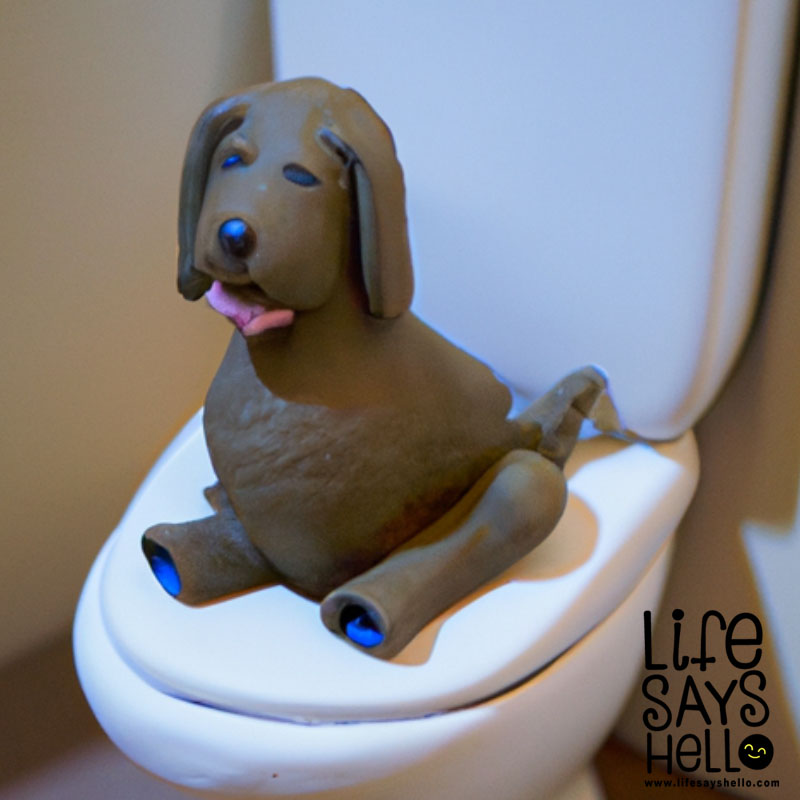10 Ingenious Ways to Store Dog Poop Until Garbage Day: A Comprehensive Guide for Every Dog Owner

As a responsible dog owner, you know that cleaning up after your furry friend is a must. But what do you do with all that dog poop until garbage day? In this comprehensive guide, we'll explore 10 ingenious methods for storing dog waste, keeping your home odor-free, and ensuring the environment stays clean and safe.
Owning a dog comes with many joys and responsibilities, and one of those responsibilities is cleaning up after them. While picking up dog poop may not be the most glamorous task, it's essential for maintaining a clean and healthy environment for both humans and animals. Proper dog waste disposal is crucial in preventing the spread of diseases, protecting water sources, and keeping public spaces clean. In this article, we will discuss 10 ingenious ways to store dog poop until garbage day, so you can keep your home and surroundings odor-free and hygienic.
1. Dog Poop Bags
One of the most common and convenient methods for storing dog poop until garbage day is using dog poop bags. These bags come in various types, including biodegradable and regular plastic bags. Biodegradable bags are an eco-friendly option, as they break down faster than regular plastic bags, reducing their impact on the environment.
To properly store dog poop using poop bags, simply pick up the waste using the bag, tie it securely, and store it in a designated outdoor trash can or container until garbage day. To minimize odor, consider using scented or odor-blocking bags, which are specifically designed to neutralize unpleasant smells.
2. Dog Waste Disposal Systems
In-ground dog waste disposal systems are an innovative solution for managing dog poop until garbage day. These systems work similarly to a mini septic tank, allowing you to dispose of dog waste directly into the ground, where it decomposes naturally over time.
To use an in-ground dog waste disposal system, simply install the unit in a suitable location in your yard, following the manufacturer's instructions. When it's time to clean up after your dog, pick up the waste using a scoop or poop bag, and deposit it into the disposal unit. The waste will gradually break down, and you won't have to worry about storing it until garbage day. Regular maintenance, such as adding water and enzymes to the unit, will ensure it continues to function effectively.
3. Reusable Containers
Another option for storing dog poop until garbage day is using a dedicated reusable container with a tight-fitting lid. This can be an old plastic container, a small bucket, or a specially designed dog waste storage container. The key is to choose a container that seals well to prevent odors from escaping.
To use a reusable container, simply pick up the dog poop using a scoop or poop bag, and place it inside the container. Secure the lid tightly and store the container in a designated outdoor area until garbage day. To keep the container clean and odor-free, be sure to wash it thoroughly with soap and water after emptying it on garbage day.
4. Double Bagging
Double bagging is a simple and effective method for storing dog poop and controlling odors until garbage day. To double bag dog poop, first, pick up the waste using a poop bag, and tie it securely. Then, place the tied bag inside a second, larger bag, such as a grocery bag or small trash bag, and tie it closed as well.
By enclosing the dog poop in two layers of bags, you can help contain odors and prevent leaks. Double bagging is especially useful if you're storing the waste in a shared trash can or an area where odors might be a concern. Be sure to dispose of the double-bagged waste on garbage day to prevent any lingering smells.
5. Dedicated Outdoor Trash Can
Having a separate outdoor trash can specifically for dog waste is a practical solution for storing dog poop until garbage day. This method keeps dog waste separate from your regular household trash, helping to minimize odors and prevent cross-contamination.
When choosing a trash can for dog waste, look for one with a tight-fitting lid and a sturdy design that can withstand outdoor conditions. To help control odors, consider using trash can liners or odor-absorbing materials, such as baking soda or cat litter, at the bottom of the can. Be sure to empty the trash can regularly on garbage day to maintain a clean and odor-free storage area.
6. Flushable Dog Poop Bags
Flushable dog poop bags are a convenient and eco-friendly option for disposing of dog waste. These bags are made from water-soluble materials that break down quickly in water, making them safe to flush down the toilet.
To use flushable dog poop bags, simply pick up the waste using the bag, and then place it in the toilet bowl. Flush the toilet, and the bag will dissolve, allowing the waste to be safely processed through your home's sewage or septic system. Keep in mind that flushable dog poop bags may not be suitable for all plumbing systems, so be sure to check with your local wastewater treatment facility or septic system provider before using them.
7. Composting Dog Poop
Composting is a natural process that transforms organic waste into nutrient-rich soil. While composting dog poop may not be suitable for everyone, it can be an effective method for managing dog waste if done correctly.
To create a dog poop compost bin, choose a suitable location in your yard, away from vegetable gardens and water sources. You can use a dedicated compost bin or create a simple compost pile by digging a hole in the ground and lining it with wire mesh or bricks. Add a layer of sawdust, straw, or wood chips to the bottom of the bin or hole to help absorb moisture and odors.
When you're ready to dispose of dog waste, pick it up using a scoop or poop bag, and add it to the compost bin. Cover the waste with a layer of sawdust, straw, or wood chips to help control odors and promote decomposition. Over time, the dog waste will break down into nutrient-rich compost that can be used to fertilize non-edible plants in your yard.
8. Using Dog Poop as Fertilizer
Using dog poop as fertilizer is a controversial topic, as dog waste can contain harmful pathogens that can be transmitted to humans and other animals. However, if done correctly, dog poop can be used as a fertilizer for non-edible plants in your yard.
To use dog poop as fertilizer, first, ensure that the waste has been properly composted, as described in the previous section. Once the composted dog waste has reached a safe and stable state, it can be applied to non-edible plants, such as ornamental flowers and shrubs. Be sure to avoid using dog poop as fertilizer for vegetable gardens or any plants that will be consumed by humans or animals, as this can pose a risk to health.
9. Dog Poop Pick-Up Services
If you're short on time or prefer not to handle dog waste yourself, consider hiring a dog poop pick-up service. These companies specialize in collecting and disposing of dog waste, ensuring that your yard stays clean and odor-free.
To find a reliable dog poop pick-up service, ask for recommendations from friends, neighbors, or your veterinarian, or search online for local providers. Be sure to compare prices and read reviews to find a service that meets your needs and budget. Some dog poop pick-up services also offer additional services, such as yard deodorizing and waste station installation, which can help keep your outdoor space clean and fresh.
10. Educate Yourself on Local Regulations
Lastly, it's essential to be aware of local dog waste disposal regulations in your area. Different cities and municipalities may have specific rules and guidelines for disposing of dog poop, including requirements for using biodegradable bags, designated disposal areas, and fines for improper disposal.
To learn about the dog waste disposal regulations in your area, consult your local government website or contact your local waste management department. By following the rules and guidelines in your community, you can help keep public spaces clean and prevent the spread of diseases associated with dog waste.
Conclusion
In conclusion, there are numerous methods for storing dog poop until garbage day, each with its own benefits and drawbacks. By choosing the method that works best for you and your dog, you can ensure that your home and surroundings stay clean, odor-free, and safe for everyone. Remember, proper dog waste disposal is not only a responsibility but also a crucial aspect of maintaining a healthy environment for both humans and animals.




Comments